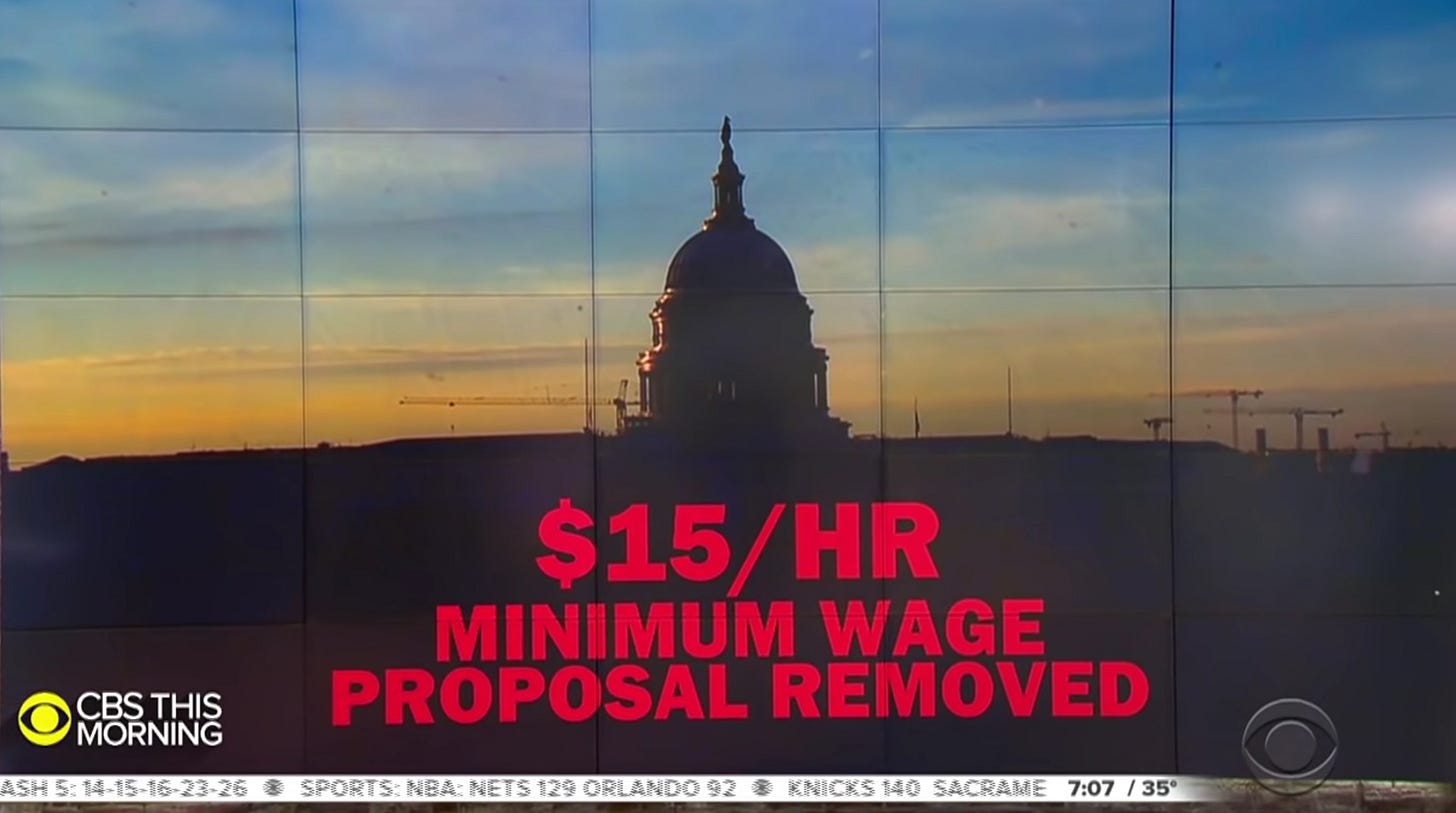America: Where It's Much Easier to Kill People Than Help Them
The system is working perfectly.
On Thursday night, America got a perfect lesson in how the system works.
Just before 7:30 p.m., news broke that the Biden administration had conducted an airstrike in Syria—part of what one analyst later described to the Washington Post as an attempt to "set the tone" with Iran ahead of any potential negotiations. According to reports, one person was killed and several others were wounded.
This was, by all accounts, not a particularly difficult process to put into place. Defense Secretary Lloyd Austin recommended the strikes to Joe Biden, and Biden agreed, and then the strikes happened. No fuss, no muss. Liberals loved it. America is back!
At almost exactly the same time, Elizabeth MacDonough, the Senate parliamentarian, announced that, in her judgment, a provision to raise the federal minimum wage to $15 an hour must be removed from the Senate's COVID relief bill because it violated the rules of the budget reconciliation process Democrats are using to push the bill through. MacDonough's rulings are not binding, and Kamala Harris, in her role as president of the Senate, can ignore them if she wants. Democrats could say, "thanks, but we'll take it from here," and dare people to vote down a hugely popular measure.
But Harris doesn't want to, and neither does Chuck Schumer, and neither does Biden, whose repeated declarations that he thought the minimum wage was doomed can't really be read as anything other than a message that he'd be perfectly fine if it disappeared from the COVID bill. So the Democrats immediately declared defeat. An unelected official made an advisory judgment that Democrats are under no obligation to follow, so the tens of millions of people who would benefit from a $15 minimum wage will just have to wait.
That is America. Killing people is easy. Helping them is almost impossible. Thursday night's events were the system working exactly as it is intended to work.
The legal justification for Biden's bombing wasn't immediately clear, but presumably, he will cite the 2001 Authorization for Use of Military Force, which has become the legal fig leaf that has allowed every president since George W. Bush to carry out any military adventure he likes with no permission needed or questions asked. Congress could repeal the AUMF and grant itself some more oversight over the way the president makes lethal and consequential military decisions, but Congress prefers instead to funnel hundreds of billions of dollars into the black box of the Pentagon and then walk away. Even if Congress did wind up repealing the AUMF, it feels foolish to assume that it would then move to meaningfully hold the executive in check. Washington has gotten quite used to presidents doing whatever they want overseas. So has America.
No, members of Congress—Democrats and Republicans alike—prefer to save their bureaucratic and restrictive systems for things that would actually help American citizens lead better, healthier, happier lives. When it comes to raising peoples' wages, the laughable edifice of rules that the Senate has constructed for itself is insurmountable.
People making starvation wages in this country will surely have sympathy for the explanation that their pay isn't going up because Democrats wanted to follow rules they didn't need to follow. Democrats have a chance to say that helping people is more important than preserving the arcane structures of a system designed to thwart democratic and humane progress, but they are going to take a pass. Making that kind of change is really, really hard, OK? It's not something simple, like an act of war.






